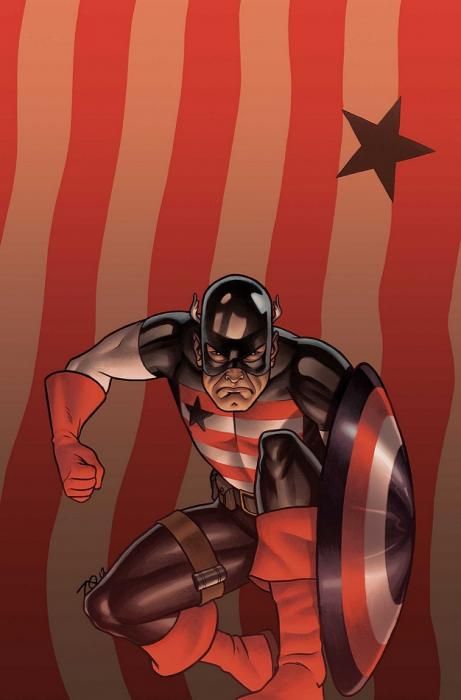"Dark Avengers" #186 by Jeff Parker, Mirco Pierfederici and Neil Edwards continues the alternate-universe story which began a few issues ago, but at this point the title seems to be doing little more than treading water before the rumored cancellation hits.
Lumbered with a largely uninteresting central cast, Parker seems to be focusing on alternate universe versions of familiar Marvel faces as a way of maintaining reader interest. There's some suggestion that this isn't an alternate universe at all, rather some altered or simulated version of the "real" Marvel Universe -- but as plot points go it's hard to make that one carry much weight. When "House of M" or "Age of Apocalypse" did the same story, it involved major changes across multiple books to make the premise viable. Whether "Dark Avengers" is trying to do a story along those (or similar) lines, the stakes don't really match up - it's the sort of story that shared universes actively harm. Even if the alternate universe setting is only intended as misdirection, readers don't believe it.
Still, U.S. Agent fans can be pleased with this issue, as the character is restored to his former glory and gets back into the field. Walker's story hasn't really moved very far since he was introduced into the book's cast, and if this is the inevitable ending for the arc that began with his encounter with Nuke, at least it's one that puts the character back into some reasonable circulation (assuming he survives).
The book's ailing fortunes aren't really helped the inconsistent art. Neil Edwards at least presented something good to look at in recent issues, but Mirco Pierfederici provides art for the bulk of this issue and it seems frequently rushed and off-model. Chris Sotomayor's colouring veers between murky and garish. Appropriate, perhaps, but neither extreme is actually enjoyable.
It's hard to say exactly what isn't clicking about "Dark Avengers" in a wider sense, though. Fundamentally, it may be because it stars a cast of ciphers who aren't being given enough time in the spotlight to develop their identities. We've yet to get inside these characters' heads, and certainly don't have a reason to root for them like we did the Thunderbolts in days gone by. It's clear what they're trying to do, but these guys are straight-up villains: why do we care if they fail?
Perhaps that's the real flaw. As readers, we expect super-villains to lose, but here we have to buy into their success even though they're barely reacting to their situation, much less giving us a reason to want them to escape. Three issues into a storyline, there needs to be a bigger reason than "because it's their book," but for now, the series seems uninterested in presenting one.

